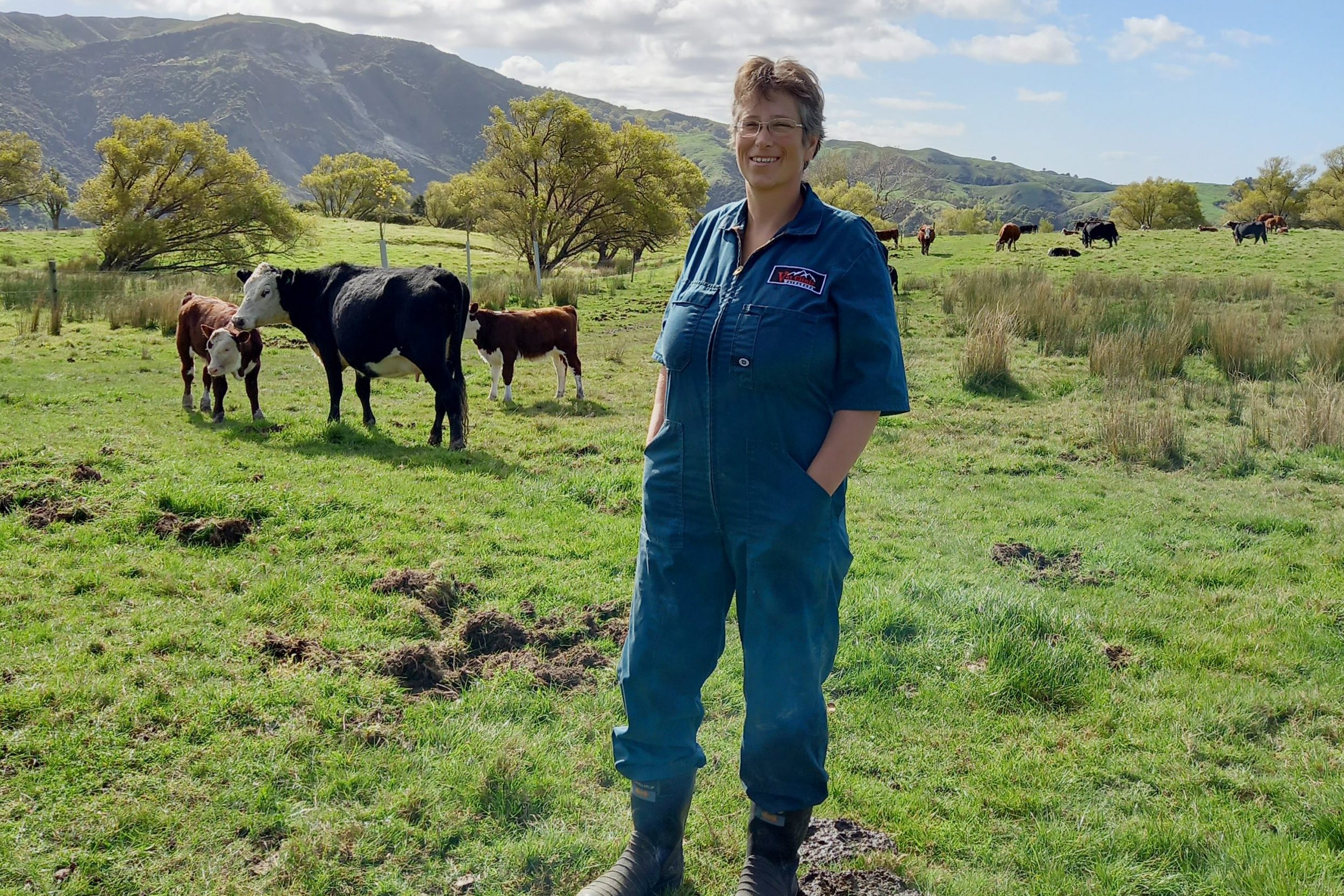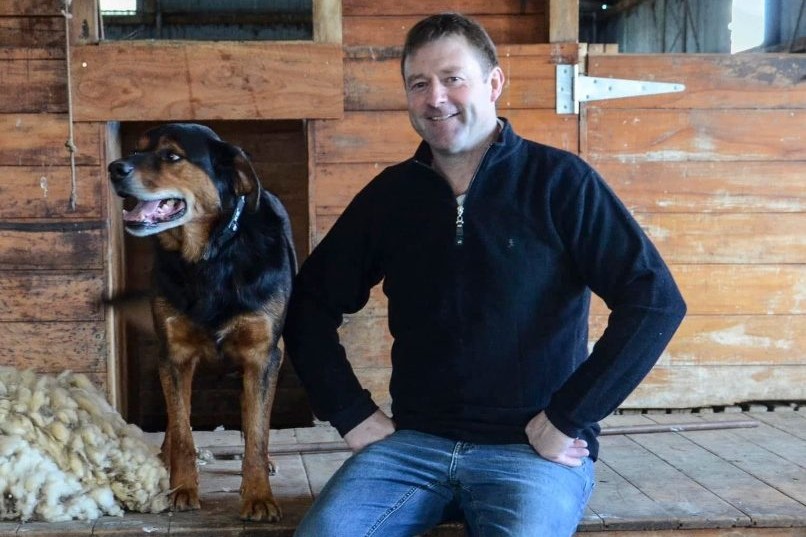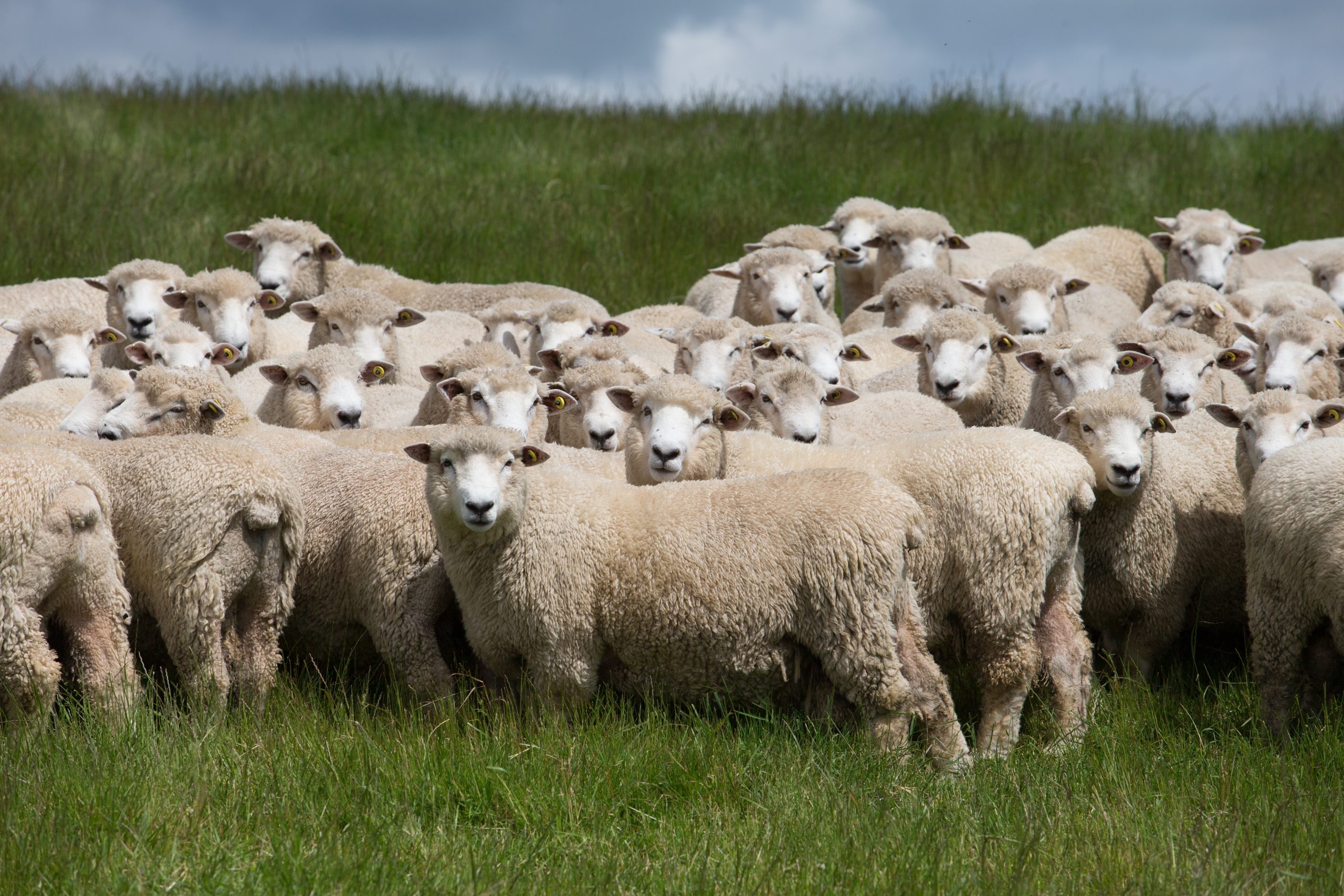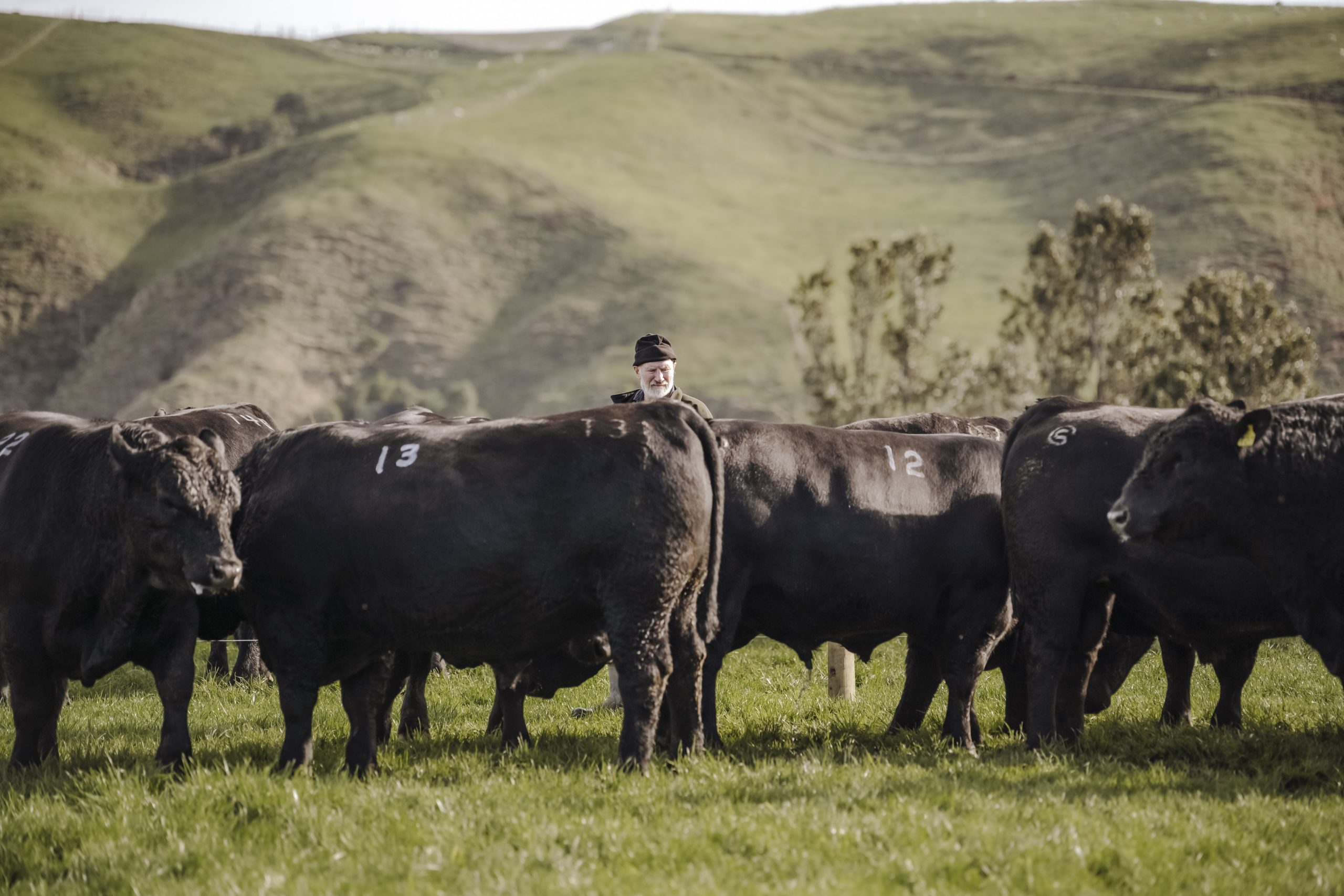Hosting his own onfarm annual sales of breeding beef heifers and sheep has proved to be a major success story for Northern Ireland farmer James Alexander.
Following a major farm restructuring back in 2014 James sold off the farm’s herd of 450 suckler cows, and steered the business into a new direction of supplying in-calf beef heifers and breeding sheep to other farmers.
This means buying in top-quality beef heifers to AI and as well as the best ewe lambs he can find in Scotland to use as his own flock replacements and as breeding stock for sale.
James farms in partnership with his parents Nelson and Anne, wife Ruth and their young family on their 1000-acre (404ha) farm near Randalstown in County Antrim. As well as the livestock business trading under the name Jalex Livestock, James and Nelson have also run a used tractor and 4×4 business since the 1970s.
About 800 to 1000 heifers are on the farm at any one time and this year’s sheep flock consists of 550 Cheviot mule ewes and over 100 pedigree Suffolk sheep.
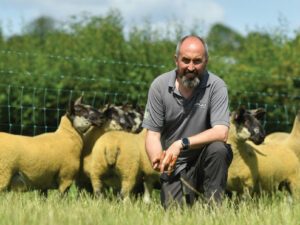
“I have always preferred breeding females and quality females, sheep or cattle, as replacements to sell for breeding, rather than producing the end product,” James says.
“This way, I have a goal in mind of what I want to produce and have to focus on the various elements to make up that animal, rather than solely on the quality of finished animal.”
With so many sheep to sell each year, in 2019 James decided to host his own sale auction on his farm, setting up a ring and pens in one of the big sheds. The event was a resounding success and that set the benchmark for future sales.
However, when Covid-19 hit, the 2020 sale was very different as James took to the internet to help keep buyers safe. About 1000 sheep were sold on the farm through the ring but the sale was streamed online via the livestock mart app MartEye and with auctioneer Richard Beattie taking the bids in the ring.
MartEye was developed during the Covid-19 era to help livestock marts facilitate the sales of livestock for farmers when the markets were closed to the public.
This year’s August sale of sheep went very well again for James who continued the trend using the app, but this time the regulations allowed more buyers to be physically present on the farm.
“An onfarm sale is more relaxing for the buyer as they get a chance to see round the farm and what type of stock you are keeping. It’s also easier on the stock with less haulage involved, and the online bidding adds that extra precedence which is needed with Covid-19,” James says.
“Online bidding makes a huge difference as people can either bid on the day at the sale, or from their own homes, or they can leave a proxy bid.”
With sheep trade prices well up this year in the United Kingdom and Ireland it was no surprise that the bidding was fast and furious at the sale held by James.
Passing through the ring were 500 Suffolk x Cheviot mules, 100 Suffolk x half-breds, 300 Cheviot mules and a selection of Beltex x Cheviot mules ewe lambs.
“We sold over 1000 sharp-headed hoggets with tight skins, plenty of character and bred to have plenty of lambs and milk, that we know will go on and be an asset to any flock. They are naturally grass-fed and will mature into super ewes.”
All of the sheep sold had high health status on Heptavac P system, were Enzo and Toxo vaccinated, dipped, and dosed ready for work. All of them were MV Accredited and quite a few were sold to buyers on the UK mainland.
“The sale went very well again this year, with prices slightly up as expected with the fat lamb and cull ewe trade being so good. Around 300 sheep went to buyers across the Irish Sea in Scotland, England and Wales.
“Our Suffolk lots sold from £220 (NZ$437.58) per head to a select batch at £440 (NZ$875.16) per head. Cheviot Mules made from £220 each to £420 per head for a pair of show quality sheep. Most lots were £240 to £300 per head,” he says.
On August 20 James also held another farm and online sale, this time selling 75 tups he had bred including pedigree Suffolk rams and some Border Leicester rams among them.
Top price of the sale was £4300 (NZ$8552) a real eye-catching Suffolk ram.
“It was another super sale with big demand for quality rams,” James says. “There was a ram for everyone at various prices to suit both the larger and smaller sheep farmer.”
Covid killed farmers’ social hub
Livestock markets across rural Ireland form a vital social hub for farmers but this network collapsed when Covid-19 hit.
The industry quickly realised cattle and sheep needed to be sold to maintain a sustainable food chain and thus the digital mart was born to facilitate sales and generate much needed income for farmers.
Onfarm sales in Northern Ireland are mostly used for herd dispersals, usually dairy animals, and machinery sales. For James Alexander, it was the perfect solution to the challenging logistics of moving so many head of sheep and cattle to markets frequently throughout the year.
Pre-Covid-19 the digital sale from a livestock mart was uncommon but even now when farmers can physically attend, the online version is still very much in play as a new tool for buying and selling livestock.
James ensures his sheep have a high health status before selling to buyers. He used vaccinations like Heptavac P to help control clostridial diseases and pasteurellosis in sheep. Enzovax is used to reduce abortions. Toxo vaccines used to prevent ovine toxoplasmosis.
The Maedi Visna Accreditation Scheme is where farmers continue to test for the Maedi Visna virus. Ireland is free of MV but Great Britain is not therefore any sheep going to or from the mainland must come from a MV-accredited flock.


